
Sajjad Raza
@sajjadraza.bsky.social
Soil & data scientist. Works at University of Nottingham. Study biogeochemistry of carbon & nitrogen. Exploring soil structure & root architure with X-ray CT scans.
Field day is a fun day. Started gas measurements on our long-term reduced tillage trial.
@dsw-isp.bsky.social @uniofnottingham.bsky.social
@dsw-isp.bsky.social @uniofnottingham.bsky.social




October 28, 2025 at 1:47 PM
Field day is a fun day. Started gas measurements on our long-term reduced tillage trial.
@dsw-isp.bsky.social @uniofnottingham.bsky.social
@dsw-isp.bsky.social @uniofnottingham.bsky.social
Can wheat yields withstand our changing soils?
Read our latest blog here:
wheatresearch.ac.uk/research/can...
@dsw-isp.bsky.social
Read our latest blog here:
wheatresearch.ac.uk/research/can...
@dsw-isp.bsky.social
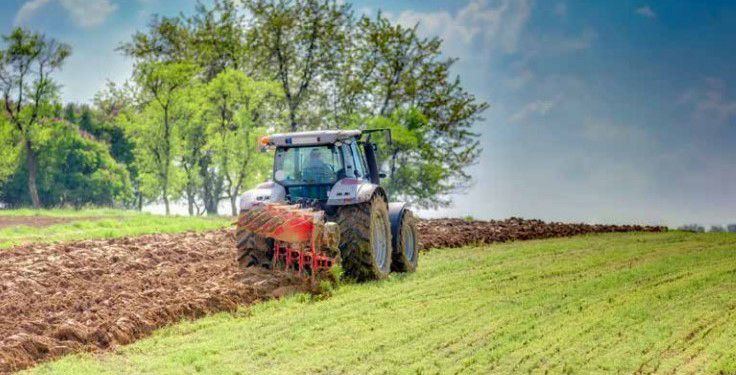
Can wheat yields withstand our changing soils? - Delivering Sustainable Wheat
Find out how our scientists are discovering if wheat yields can withstand out changing soils and how this could be addressed with research.
wheatresearch.ac.uk
October 23, 2025 at 11:47 AM
Can wheat yields withstand our changing soils?
Read our latest blog here:
wheatresearch.ac.uk/research/can...
@dsw-isp.bsky.social
Read our latest blog here:
wheatresearch.ac.uk/research/can...
@dsw-isp.bsky.social
Our poster is up at Rhizosphere conference!
Come check it out and have a look 👀
Looking forward to your thoughts and discussions!
@dsw-isp.bsky.social
Come check it out and have a look 👀
Looking forward to your thoughts and discussions!
@dsw-isp.bsky.social

June 18, 2025 at 12:01 PM
Our poster is up at Rhizosphere conference!
Come check it out and have a look 👀
Looking forward to your thoughts and discussions!
@dsw-isp.bsky.social
Come check it out and have a look 👀
Looking forward to your thoughts and discussions!
@dsw-isp.bsky.social
Collected 1-meter-deep soil cores for our Delivering Sustainable Wheat @dsw-isp.bsky.social project. The cores will be scanned using X-ray CT for soil structural and root architectural analyses. @uniofnottingham.bsky.social @rothamsted.bsky.social
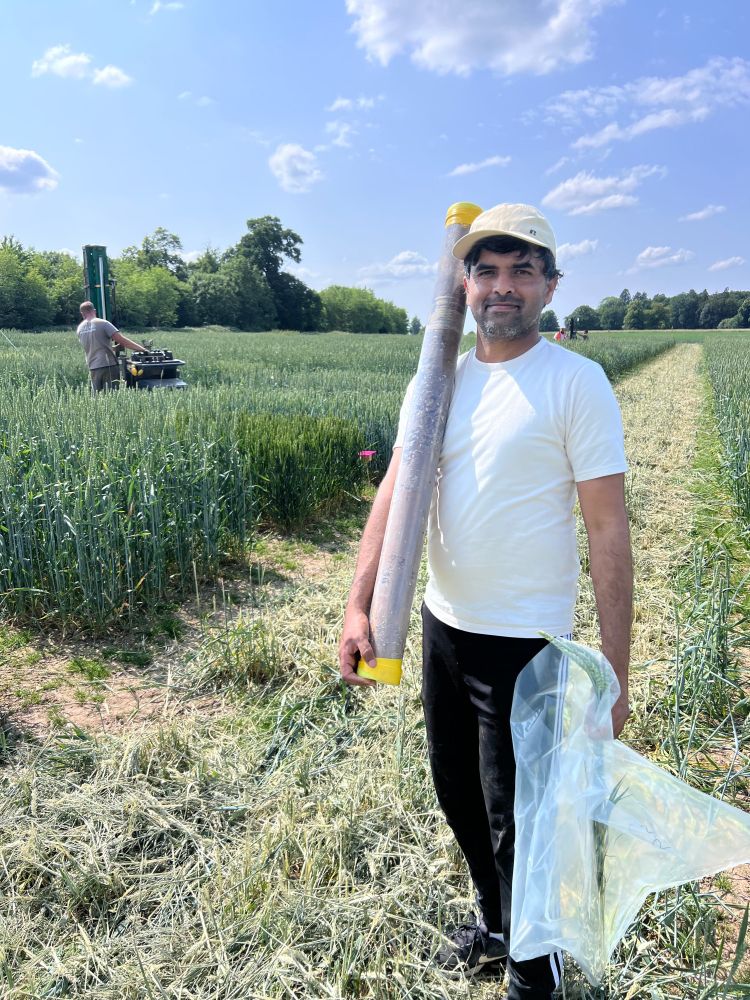
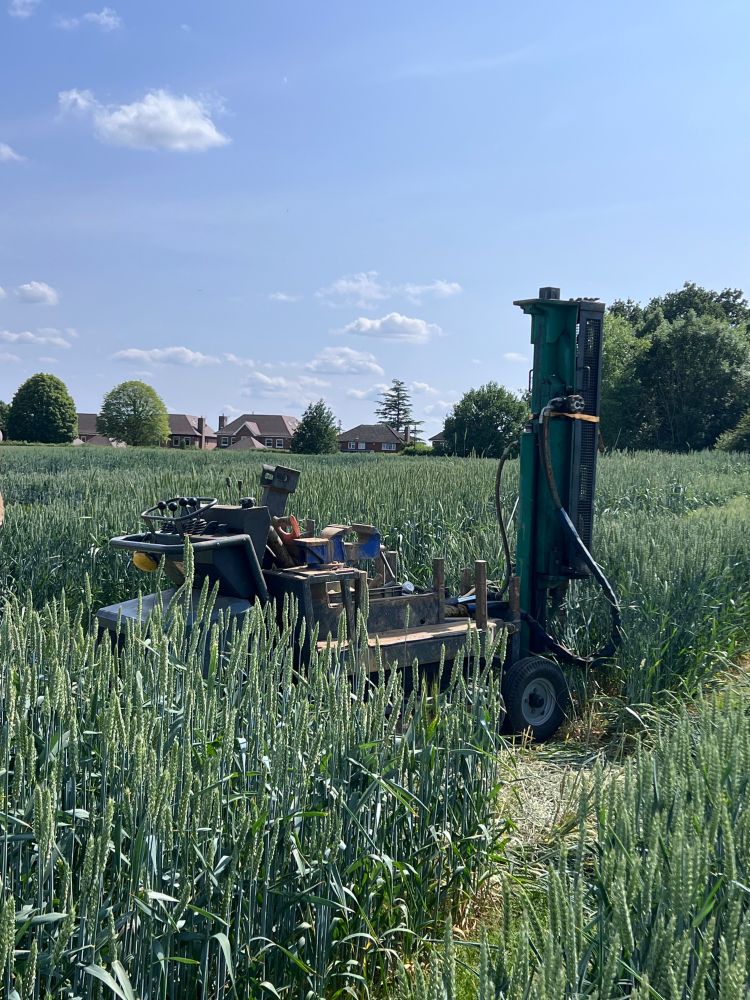
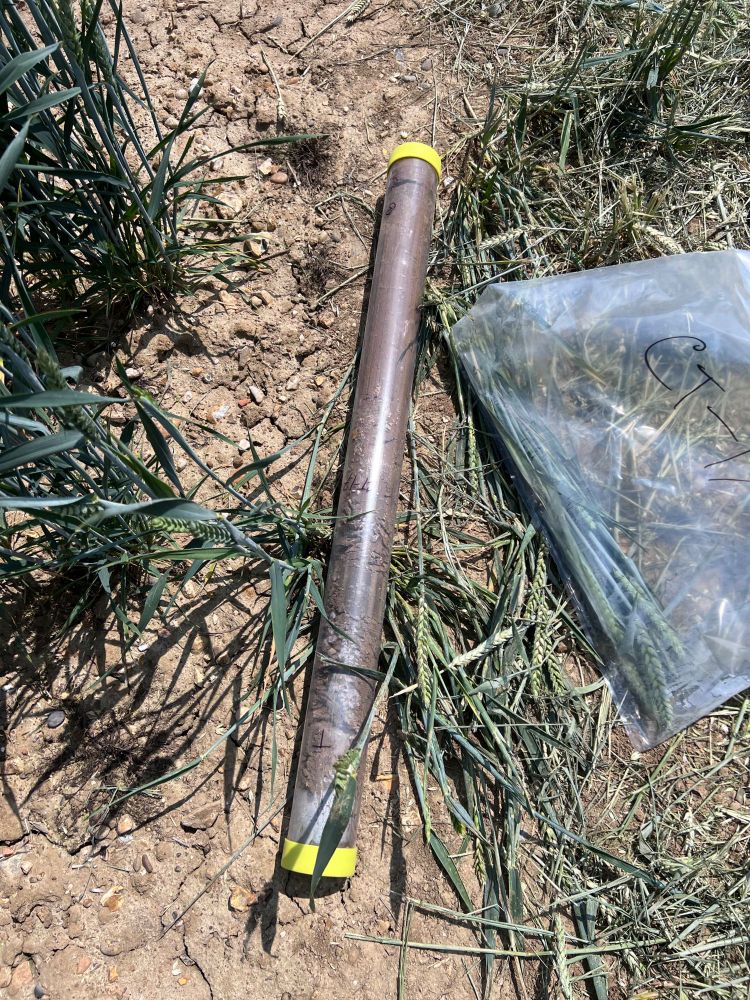
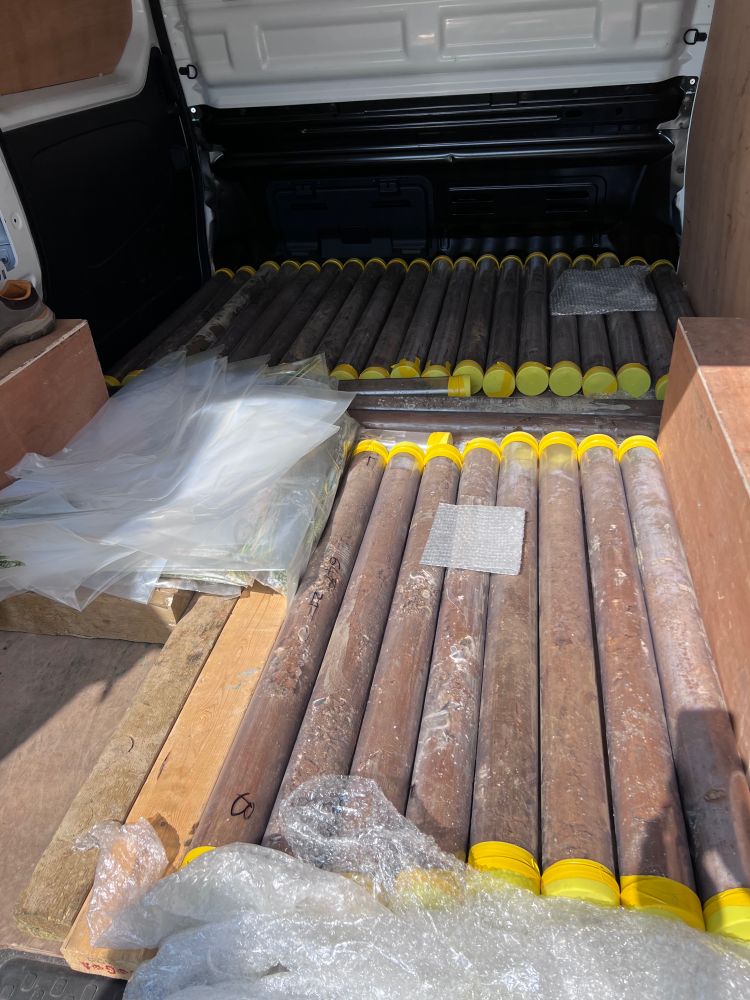
June 15, 2025 at 8:23 AM
Collected 1-meter-deep soil cores for our Delivering Sustainable Wheat @dsw-isp.bsky.social project. The cores will be scanned using X-ray CT for soil structural and root architectural analyses. @uniofnottingham.bsky.social @rothamsted.bsky.social
Our paper has featured in Nature Climate Change as a Research Highlight.
Plant processes matter in soil carbon research
www.nature.com/articles/s41...
Original paper: soil.copernicus.org/articles/11/...
Plant processes matter in soil carbon research
www.nature.com/articles/s41...
Original paper: soil.copernicus.org/articles/11/...



June 11, 2025 at 9:36 PM
Our paper has featured in Nature Climate Change as a Research Highlight.
Plant processes matter in soil carbon research
www.nature.com/articles/s41...
Original paper: soil.copernicus.org/articles/11/...
Plant processes matter in soil carbon research
www.nature.com/articles/s41...
Original paper: soil.copernicus.org/articles/11/...
Honoured to see our recent Nature Plants paper featured in the UK’s Crop Production Magazine. The article highlights our call for stronger integration between plant breeding and soil science, with expert views from across the industry. Great to see this conversation gaining momentum.



May 15, 2025 at 5:54 PM
Honoured to see our recent Nature Plants paper featured in the UK’s Crop Production Magazine. The article highlights our call for stronger integration between plant breeding and soil science, with expert views from across the industry. Great to see this conversation gaining momentum.
Published in SOIL – selected as a Highlight paper by editors. Plant physiological processes regulate organic carbon (C) inputs to soils, yet are overlooked in soil organic C research, limiting our understanding of C dynamics and sequestration potential.
doi.org/10.5194/soil...
doi.org/10.5194/soil...


May 6, 2025 at 6:57 AM
Published in SOIL – selected as a Highlight paper by editors. Plant physiological processes regulate organic carbon (C) inputs to soils, yet are overlooked in soil organic C research, limiting our understanding of C dynamics and sequestration potential.
doi.org/10.5194/soil...
doi.org/10.5194/soil...
It was a good day for fieldwork. We installed soil moisture sensors and took gas measurements as part of the Delivering Sustainable Wheat project.



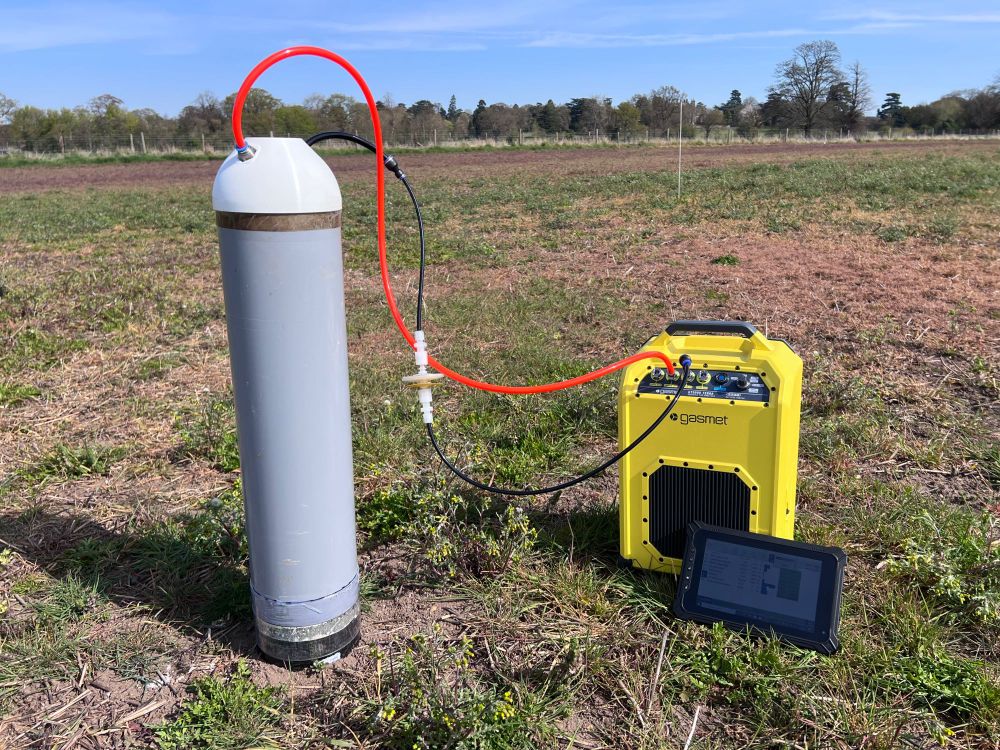
April 8, 2025 at 9:33 PM
It was a good day for fieldwork. We installed soil moisture sensors and took gas measurements as part of the Delivering Sustainable Wheat project.
Reposted by Sajjad Raza
📢New Paper! Future crop breeding needs to consider future soils. @uniofnottingham.bsky.social with our own Malcolm Hawkesford & @johninnescentre.bsky.social published today in @natureplants.bsky.social
www.nature.com/articles/s41...
www.nature.com/articles/s41...
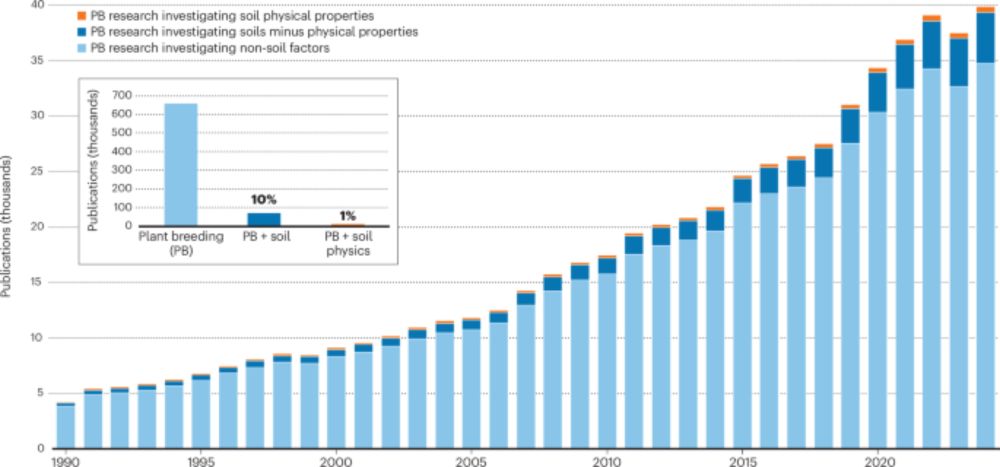
Future crop breeding needs to consider future soils - Nature Plants
Modern crop breeding and seed certification agencies ignore the known spatial heterogeneity of soils and develop cultivars to thrive in a ‘one-size-fits-all’ soil environment. Neglecting the evolving ...
www.nature.com
April 2, 2025 at 10:38 AM
📢New Paper! Future crop breeding needs to consider future soils. @uniofnottingham.bsky.social with our own Malcolm Hawkesford & @johninnescentre.bsky.social published today in @natureplants.bsky.social
www.nature.com/articles/s41...
www.nature.com/articles/s41...
Reposted by Sajjad Raza
New Comment: "Future crop breeding needs to consider future soils" rdcu.be/ef8bq
Modern crop breeding and seed certification agencies ignore the known spatial heterogeneity of soils and develop cultivars to thrive in a ‘one-size-fits-all’ soil environment.
Modern crop breeding and seed certification agencies ignore the known spatial heterogeneity of soils and develop cultivars to thrive in a ‘one-size-fits-all’ soil environment.

April 2, 2025 at 12:20 PM
New Comment: "Future crop breeding needs to consider future soils" rdcu.be/ef8bq
Modern crop breeding and seed certification agencies ignore the known spatial heterogeneity of soils and develop cultivars to thrive in a ‘one-size-fits-all’ soil environment.
Modern crop breeding and seed certification agencies ignore the known spatial heterogeneity of soils and develop cultivars to thrive in a ‘one-size-fits-all’ soil environment.
Our paper in Nature Plants is finally online.
www.nature.com/articles/s41...
We have highlighted that modern crop breeding and seed certification agencies ignore the known spatial heterogeneity of soils and develop cultivars to thrive in a ‘one-size-fits-all’ soil environment.
www.nature.com/articles/s41...
We have highlighted that modern crop breeding and seed certification agencies ignore the known spatial heterogeneity of soils and develop cultivars to thrive in a ‘one-size-fits-all’ soil environment.

April 2, 2025 at 2:03 PM
Our paper in Nature Plants is finally online.
www.nature.com/articles/s41...
We have highlighted that modern crop breeding and seed certification agencies ignore the known spatial heterogeneity of soils and develop cultivars to thrive in a ‘one-size-fits-all’ soil environment.
www.nature.com/articles/s41...
We have highlighted that modern crop breeding and seed certification agencies ignore the known spatial heterogeneity of soils and develop cultivars to thrive in a ‘one-size-fits-all’ soil environment.
We explored the long-term impact of nitrogen fertilizer in a 7-year study. Initial N applications caused 237-489 kg N ha⁻¹ accumulation in the 0-2 m soil profile. The "legacy N" effect continued to benefit crop for the next 5 years, accompanied by decreasing nitrate levels.
doi.org/10.1016/j.ej...
doi.org/10.1016/j.ej...


January 20, 2025 at 2:53 PM
We explored the long-term impact of nitrogen fertilizer in a 7-year study. Initial N applications caused 237-489 kg N ha⁻¹ accumulation in the 0-2 m soil profile. The "legacy N" effect continued to benefit crop for the next 5 years, accompanied by decreasing nitrate levels.
doi.org/10.1016/j.ej...
doi.org/10.1016/j.ej...
Plant physiological processes regulate soil organic carbon inputs, yet they are largely overlooked in organic carbon research, limiting our understanding of carbon dynamics and sequestration potential. Plant and soil scientists should work together on SOC.
egusphere.copernicus.org/preprints/20...
egusphere.copernicus.org/preprints/20...


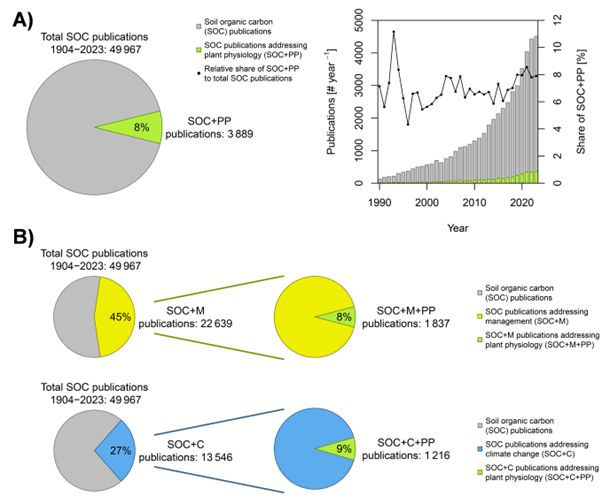
November 28, 2024 at 2:01 PM
Plant physiological processes regulate soil organic carbon inputs, yet they are largely overlooked in organic carbon research, limiting our understanding of carbon dynamics and sequestration potential. Plant and soil scientists should work together on SOC.
egusphere.copernicus.org/preprints/20...
egusphere.copernicus.org/preprints/20...
Our first snowfall of the season.

November 21, 2024 at 1:10 AM
Our first snowfall of the season.
We quantified Pakistan’s nitrogen budget for over five decades. Pakistan’s nitrogen use efficiency is less than 25%, one of the lowest in the world. Huge increases in surplus nitrogen are substantial threat to ecosystem sustainability.
Read more: iopscience.iop.org/article/10.1...
Read more: iopscience.iop.org/article/10.1...

November 17, 2024 at 7:33 PM
We quantified Pakistan’s nitrogen budget for over five decades. Pakistan’s nitrogen use efficiency is less than 25%, one of the lowest in the world. Huge increases in surplus nitrogen are substantial threat to ecosystem sustainability.
Read more: iopscience.iop.org/article/10.1...
Read more: iopscience.iop.org/article/10.1...

